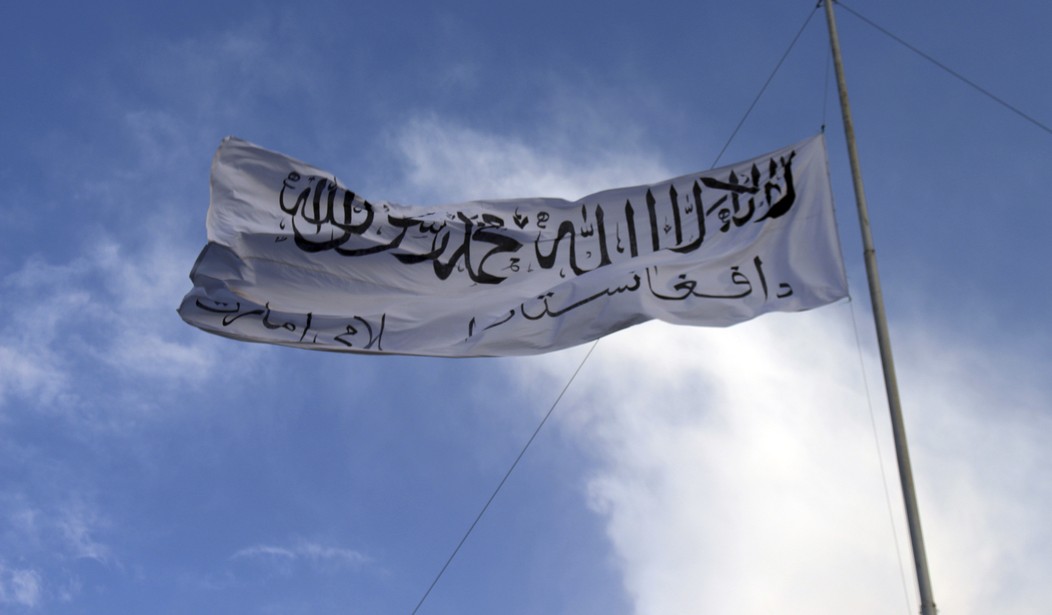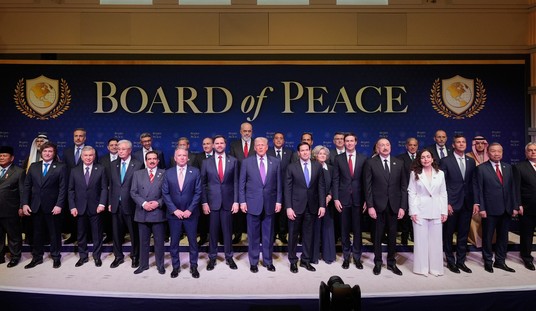The war with the Taliban began with a demand by the West to turn over Osama bin Laden in the aftermath of the September 11, 2001, terrorist attack on the United States. The Taliban-led government of Afghanistan declined, sparking one of the longest wars in US history. According to a study by Brown University, the US spent $2.3 trillion dollars in the theater over the course of the 20-year war.
After twenty years, the United States finally left Afghanistan. The Taliban, who controlled the country prior to the arrival of America, are once again in control of the country. The battlefields are now quiet and the process of picking up the pieces has begun.
But’s it’s a path strewn with obstacles. Now devoid of a steady stream of foreign aid, the Afghan economy finds itself teetering on the edge of economic collapse. The Islamic Emirate of Afghanistan, the name of the government formed by the Taliban, has not received international recognition.
The demands of the global community of nations ranging from Western ideals about human rights to universal concerns about anti-terrorism have made the Islamic fundamentalist culture taught by the Taliban leadership to its rank and file as much of a future liability for international acceptance as it was an asset to victory during the war.
That indoctrination into the Taliban version of “political correctness” now comes back to haunt the Emirate. The Taliban built an army on the teachings of Islamic fundamentalism. Now that they are in power, the reality of fitting into the international community conflicts with how they got here.
Terrorist groups, who have the luxury of thumbing their noses at international norms, now compete for loyalty of the Taliban cadre, creating the difficult position of further fragmenting an already tenuous internal government coalition of factions struggling to gain international acceptance.
The harsh reality is that the Afghans have little to barter with, a lot of hard choices to make; and quite frankly, there aren’t a lot of people interested in helping them right now.
America’s Enduring National Interest
For the United States and the Western allies who invested in containing the war on terror in Afghanistan, the question of how to best fill the vacuum is the new order of business. To help me understand the complexity, I interviewed the one person I know who has eyes on the ground in Afghanistan, foreign correspondent Hollie McKay, who has been reporting diligently from Kabul since the US exit in the waning days of August of 2021.
Is ISIS-K really an international terrorism threat or is it more of an internal faction problem for Afghanistan? Her response,
“I think just based on ISIS-K ideology which is very different to the Taliban’s, both are obviously extreme in their Islamic views. But the Taliban very much have nationalistic goals. They don’t really care about things beyond Afghanistan’s borders. The Taliban’s goal is to control Afghanistan and to ensure that no foreign footprint touches Afghanistan again.
Whereas ISIS-K, you can just tell by their name. It’s an international name, it’s the Khorasan Group, which reflects that whole area of South Asia, and they have goals beyond the Afghan border.
I interviewed a fighter a couple of weeks ago in Kuna and he said their first goal was Pakistan. He said anyone against Islam or against their way of life is considered an infidel and would be attacked, which definitely broadens the situation a lot. So, I really do think ISIS K is an international threat.
There is a huge denial problem that the Taliban has on this. They are trying to project the image that they have full control of the country, that it’s secure that it’s safe. But, on the ground, we are seeing attacks almost every day, and that certainly foils the Taliban’s narrative.
I think ISIS-K is something to be reckoned with, and I think until the Taliban comes out and acknowledges that it is a problem, it’s only going to get worse. It’s something to be concerned about.”
The follow-up question to that is, of course, Is ISIS-K a clear and present threat to US interest at this point? The fighter you interviewed is focusing his animus on Pakistan. Is this more of a regional Southwest Asian phenomenon? Or is it expected to expand beyond Southwest Asia?
“I don’t think ISIS-K has a huge amount of capability right now. They’re not at that point where they have the capabilities to go too far beyond the region. But that’s not to say that that can’t happen within the next six to twelve months, depending on where ISIS-K’s future funding and recruitment comes from.
The Taliban need to deal with the possibility of their younger foot soldiers defecting to ISIS-K because they’re looking for an even more stringent interpretation of Islam. Things could change dramatically depending on what happens. ISIS-K is able to offer a salary to its soldiers, whereas the Taliban cannot. So there are reasons why people will join ISIS-K beyond just ideological ones. While I think it is not immediate, certainly things can happen. ISIS is continuing to attract foreign recruits from different places around the world.
I think it’s something to keep an eye on. It’s also problematic. The Taliban do not have the sophistication to foil it. I think that there was a lot of hype, particularly from the western media, about the Taliban using biometric systems and access to all this weaponry and things; but they don’t have very good intelligence capabilities beyond what they are really great at, which is the human intelligence element. That’s pretty much solely how they rely on their intelligence. It’s through human sources. When they arrest one person, they are coerced into giving information, or neighbors will tell on somebody. It very much filters human to human. And that’s how they foil attacks and do their intelligence, This can only go so far. It’s an important capability that the Taliban have really nailed, but without advanced capabilities to go beyond that it is going to be a real problem.”
My observation from Hollie’s response is that ISIS-K is not presently a direct threat to the United States. The movement is, for the moment, too small and too myopic.
But I also believe that ISIS-K will eventually be a threat to the regional stability of Southwest Asia because Afghanistan offers an ideal incubator for the group to grow stronger. I do not presently believe that the Taliban will be able to stem the coming tide of defections from their ranks into ISIS-K. The tide of the internal culture war of the country is against the government.
Eventually, if the process is allowed to ferment, the world will face a decision point where it will have to decide if the international community must again enter the region to aid neighboring nations that will inevitably face the wrath of the fundamentalist Islam agenda of ISIS-K.
This begs the question, what is the US national interest to mitigate the possibility of the Taliban falling on their own sword to ISIS-K? So, I asked McKay, “Is the West correct in demanding Afghanistan own up to human rights as a predicate to recognition even if it means the country might descend into a new civil war?” Her reply,
“My assessment at the end of the day is probably not the assessment that a lot of the US Republicans want to hear, and that is, what choice have we got here? The Taliban are not going away. No one else is coming to take over the government. And even if someone else was to take over control of the government, as happened in 2001, the Taliban are still going to be here with incredible force so I don’t think there are a lot of options right now. Therefore, the international community, to a degree, has to work with what we have.
It’s not an unfamiliar compromise on the world stage. I’ll note that the US has relations with countries that are severe human rights abusers. It is a little bit hypocritical to pick. I think there must be dialogue that’s worked out with conditions and those conditions do have to incorporate human rights aspects of it.
But I think just to turn a blind eye and create this pariah country is a little tone-deaf. I say that because that’s what happened in the 1990s. There was no country that was more isolated than Afghanistan when the Taliban were in power the first time. Look what happened. They were able to high host al Qaeda, which then was able to attack the United States.
There’s a powerful lesson in that. I think to a degree, it happened because Afghanistan was so isolated from the international community. There was so little footprint on the ground. So little interaction. So little diplomacy and dialogue. They were able to just really go full rogue.
That’s not a scenario that any of us want to see again. I think just to repeat that is not learning from history. I think there has must be some dialogue and perspective even as the West makes demands.
From what I’m seeing on the ground, there are certainly human rights problems. But when I look at other countries that the US has relations with, I don’t necessarily see conditions in Afghanistan are worse than that.”
Pressing the question further, “Can the Taliban regime survive?”
“You know that that really comes down to the Taliban itself. And that, in turn, comes down to the factions within the Taliban, which are struggling for power. Regarding the different factions, things are, as of now, things are, fairly at bay; but who knows where that will go?
As one Taliban Commander put it to me: The Taliban are used to surviving on very little overhead. They don’t need copious amounts of foreign aid or the things that the previous government needed. It was essentially an artificial economy that the US created.
The Taliban doesn’t need that. They can function on a lot less than what was previously made available to the country. But it really comes just down to their own power struggles and how they can resolve them.
The Taliban is quite adept at listening to orders when an order is handed down from high to low or somebody else. They are rather good at following orders. So, it really comes down to the quality of the leadership structure. The Afghans haven’t seen their Supreme leader. They don’t know where he is; or frankly if he actually exists. It’s going to come down to when and if he decides to come out and take that leadership role.”
So can the United States afford to ignore Afghanistan? Or is leaving things in the region primarily to the people like the Russians, the Chinese, the Iranians, and the United Nations a viable alternative to the United States having some involvement in what happens next?
“The US is still the world superpower, and I would certainly think that it would be in the United States’ best interest to have some sort of involvement in Afghanistan.
This narrative that the Chinese are taking over. The Russians are taking over. I think that’s a little bit overblown. In the beginning, China, for one, offered a lot of aid money to Afghanistan, but it hasn’t received it. So, I think to say that China is controlling Afghanistan is a misnomer. The same thing with Russia. My impression right now is that the Taliban are extremely cautious with any foreign engagements.
I think that for the US, especially given the history and the amount of blood and treasure lost, it would be a great disservice to that legacy to completely abandon the country. I think that it would be pivotal for the US, in some way, to have some form of dialogue or open channel of communication with the Taliban.”
And the United Nations and international community?
“Well, that’s really what the Taliban want. What they were never able to get in the 1990s was a seat at the United Nations or the acknowledgment that went with it. My understanding on this is that perhaps the UN maybe has learned a little bit from that, too, and would be more open to talking to them, and I think a lot of countries would be willing to have another look, too.
But there is a fear of the US. If countries were to establish relations or open embassies, etc. What sort of backlash would they receive from the US? I think a lot of Afghanistan’s future still points to Washington. People are looking at Washington to see what direction that it takes.
There have been three years of intense negotiations with the Taliban, so to kind of walk away from the table right now, doesn’t seem to make a lot of strategic sense.”
We are still pivotal to this world.
While the war may be over, it turns out that the United States remains the pivotal nation to the fate of Afghanistan, Southwest Asia, and the future of global terrorism. We are the nation who can make the strategic choice between sending Afghanistan down the path of international pariah that will eventually result in ISIS-K rising to power and threatening the world; or facilitating the path, albeit with delicately metered demands, which will bring Afghanistan into the community of nations. It’s our choice to make and every other nation on earth awaits our decision.
At the very beginning of the war, many thinkers, myself included, expressed reservations about entering Afghanistan, also known as “The Graveyard of Empires,” because many of us did not believe that a young culture like America had the wisdom to take on a task that would take at least a century to do properly. But we went anyway. Twenty years on, we have played out our initial hand of cards in the first round of a global poker game. We lost. The question is, “What did we learn from it?”
There are eighty years left in the timeline of what we began. We could repeat the mistake of the past. We could start the cycle of death over again, as has been done many times before; not just by us, but by everyone else that’s tried. Or we could find a better way. War didn’t work. It almost never does. Enduring legacies require finding that long path to peace and tranquility. Not an easy thing to do. But not something we haven’t done.
In the late 1790s, when the United States was a newborn, the colonies of the world looked to America for leadership to shed the bondage of colonialism. At the time, we were so weak. As John Adams expressed, we could not do much more than inspire others to dream that they might one day do the same. It would take until the end of World War 2 for us to reach a pinnacle of power that could create the conditions for those dreams to be free to manifest, but we did. And that says something great about the United States of America.
Today, the conflict isn’t colonial, it’s cultural. Both inside our nation and beyond our borders, the battle between tolerance and fanaticism rages. We’ve learned a hard lesson that money and might don’t work to solve it.
That’s the lesson for America from Afghanistan.













Join the conversation as a VIP Member